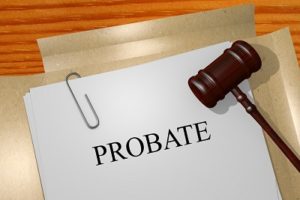With the right ancillary probate lawyer Lafayette, LA residents turn to by your side, the probate process for your loved one’s will does not have to be the long, drawn-out, and stressful ordeal that you may envision it will be. At Theus Law Offices, we have extensive experience with probating wills, from wills that have a simple probate process, estates that have a complex and acrimonious probate process, and estates that require ancillary probate when the decedent owned property in another state other than Louisiana when they died.
What Is Probate?
Probate is the process that an estate has to go through before the assets can be divided among the heirs. This is done based on what the decedent has stipulated in the will. If there is no will, then the assets of the estate will be divided according to the laws of the state the decedent lived in.
The following are the steps that must be taken in order to complete the probate process:
The will is filed, and heirs are notified.
After a person dies, the individual that they named as the executor of their estate files the will with the probate court in the county the decedent lived in. If there was no will, then the court will appoint someone as the administrator of the estate. Once the petition is filed, the court will set a hearing date. All beneficiaries named in the will must be notified. If they object to any terms set forth in the will, they can file a motion contesting the will. There is also a requirement for a notice of the hearing to be published in one of the county newspapers, under the legal notice section.
If the person owned property in another state, a Lafayette, LA ancillary probate lawyer can help you through the steps needed to begin the process in that state.
Creditors are notified.
Once the court approves the appointment of the executor named in the will, that individual will notify all creditors of the estate. The purpose of this is to give them a chance to file a claim against the estate for any debt the decedent had with them. The notice the creditor receives will have a date for the deadline they have to file their claim.
An inventory of assets is made.
The executor is also responsible for making a list of all the assets the decedent owned. Each asset must also be appraised to verify its worth. Some of the assets that should be on this list include:
- Bonds
- Business interests
- Collections
- Digital assets
- Financial accounts
- Real estate
- Stocks
- Vehicles
An inventory of debt is made.
No assets can be distributed to any heirs of the estate until all the expenses of the estate have been addressed. Some of the approved expenses include the following:
- Any debts due to the federal government
- Any debts due to the state, county, or municipality
- Any money that is owed to employees of the decedent
- Funeral and burial expenses
Heirs
When all the expenses have been paid and any claims filed against the estate settled, the assets can be distributed to the heirs of the estate. The executor will ask permission of the court to do so. If there was no will, then the administrator will ask permission of the court to distribute assets according to the intestate laws of the state. Once the court approves, assets will be liquidated, financial accounts, stocks, and bonds will be transferred, and new deeds drawn up for any real estate that is being transferred.
This process is done in both the state the decedent lived in and any other states where ancillary probate is taking place because of assets owned there. If you have questions and need assistance with your loved one’s estate, contact Theus Law Offices to schedule a consultation with a dedicated Lafayette, LA ancillary probate lawyer.










